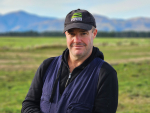National’s agriculture spokespeople Barbara Kuriger and Joseph Mooney have added their voices to the chorus of people asking the Government to delay winter grazing regulations.
The regulations come into effect in November this year, with many saying local councils are ill equipped to handle the influx of resource consents they will receive as a result of the new regulations.
Industry bodies Federated Farmers, Beef+Lamb New Zealand and DairyNZ have all requested the Government delay the introduction of the regulations until November 2023.
“Under Environment Minister David Parker’s regulations, farmers must have a certified freshwater farm plan for winter grazing on sloping land. If they do not have a certified plan, they must obtain a resource consent,” Kuriger says.
Two years on from the passing of the regulations, the Ministry for the Environment has not completed a framework which would allow farmers to certify farm plans, Kuriger says.
“Officials have indicated the framework will not be ready this year.”
Already, the regulations have been delayed twice. The first time was in 2021 and it saw the rules delayed until May this year. Then, in May, the regulations were delayed once again.
“Because the guidelines will not be ready, many thousands of farmers will have no alternative but to apply for resource consents for their winter grazing.
“Officials say as many as 10,000 resource consents will be required, while industry estimates are higher,” says Kuriger, adding that each application could cost as much as $10,000.
Joseph Mooney, MP for Southland and National’s associate spokesman for agriculture, says farmers are already facing the highest inflation in over 30 years, “adding $100 million in unnecessary costs is a kick in the guts for New Zealand’s most productive sector”.
“The worst part is that forcing farmers to apply for consents is unlikely to achieve any environmental gains.”
“If New Zealand’s regional councils were to suddenly receive 10,000 applications, the consenting teams would inevitably be swamped, meaning the process would likely become a box-ticking exercise.”
The regulations come into effect on 1 November 2022 ahead of the 2023 winter grazing period.



















